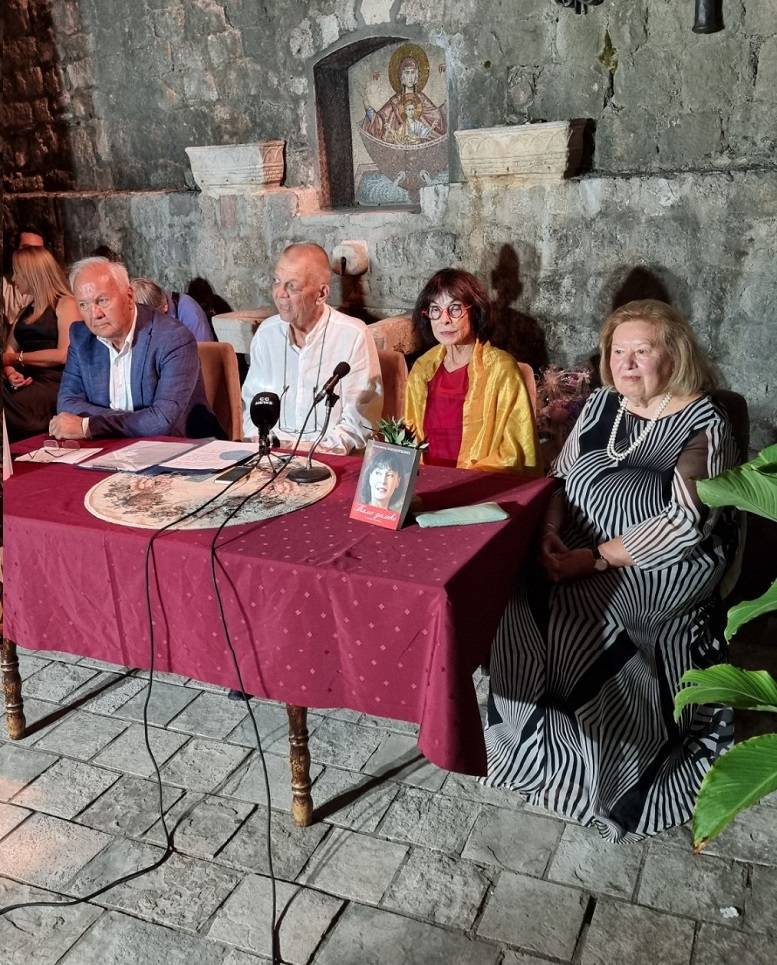
IN THE GATE OF THE CHURCH OF ST. NIKOLE IN KOTOR THE BOOK PROMOTION WAS HELD BY JELISAVETA KARAĐORĐEVIĆ
The promotion of the book "Far Away", by Jelisaveta Karađorđević, was held last night in the crowded gate of the Church of St. Nicholas in Kotor's Old Town.In addition to the author, journalist Dušan Davidović, Manojlo Manjo Vukotić, director of the publishing house "Vukotić medija" and Dušanka S. Subotić Homen, in whose house in the Old Town Princess Karađorđević was a frequent guest, and in whose gallery she exhibited her paintings and opened exhibitions of famous painters, spoke about the book, an autobiography composed of diary entries and narrative units.
Princess Jelisaveta Karađorđević was expelled from the country as a four-year-old child, after the coup on March 27, 1941, when her father Prince Pavle (1893-1976) had to leave Yugoslavia with his family and go into exile in Africa.
After the harsh conditions of growing up in Kenya, the life of Princess Karađorđević took place in Western Europe and America, after which she returned to her native country only after more than 40 years on her turbulent life path. As heard at the promotion, the arrival in Belgrade and the White Palace in 1987 are among the most exciting segments of the book "Far Away".
Dušan Davidović recalled that Princess Jelisaveta Karađorđević was a frequent guest of Kotor, among other things she promoted the book of poems for children "Fairy Tales", and as an art lover, painter, presented her works in the Gallery near Homen, conducted the City Music...
"Good evening, gentlemen of Kotor, pleasant inhabitants of Boka, the "Bride of the Adriatic", good evening, honorable fathers", Manjo Vukotić began his presentation, saying that it is nice to come to a city rich in history and culture, over 2,200 years old, and that there is no historian who can list all the powers, hordes, empires, kingdoms, dynasties that passed through Kotor.
He said about "Tamo daleko" that "the book with an intoxicating title is from the safe hand and pure and open heart of Princess Jelisaveta Karađorđević, of turbulent waves in the ocean spaces".
"She was born in the court, in the White Court, she was baptized by the Serbian Patriarch Varnava, and the godparents were the Greek Prince Nikola and the British Duke of Kent, and the godmothers were Queen Maria and the English Queen Mary. She was barely four years old when she was expelled from the country. She was a political prisoner in African countries. The communist government, like her entire family, forbade her to return to her homeland, took away her citizenship, passport, right to vote... For decades, she lived as a state The first bravely and dignified herself in Belgrade, after the persecution that lasted for 46 years, and opened the golden doors for the descendants of the great Karađorđević dynasty to return to the Ustanik and royal hearths", said Vukotić.
In the book, he continued, different life moments are connected as if in one pearl necklace.
"There were alternating family dramas and joys, the premature and tragic death of her brother Nikola, the painful departure of her parents in the Parisian environment, heartbreaking marriages, some unsustainable loves, a nebulous entry into political sessions, dedicated humanitarian work. She arrived in many parts of the world, from Panama, the Himalayas, to Japan, Moscow... She met world leaders. She danced with John Kennedy. He even once whispered a confidential state secret in her ear. She went above and beyond with the then powerful Gorbachev. She rode on yachts where only the "blue blood" could enter. She was a photo model for famous fashion houses, but she left it all to her heiress (Katarina Oxenberg) to play in the series called "Dynasty".
The princess, he continued, is in it all stacked up with life stories and circumstances, she had a big secret that she was looking for - "who am I, I want to know, I want to have my own house, my own country, I want to go back there far away".
After returning to Belgrade, the princess dedicated herself to humanitarian work, visiting the wounded in the Republic of Srpska, providing medical aid, providing scholarships for Serbian students, writing books for children, painting and drawing...
"She was resurrected as a full-blooded Serbian woman, like that red Kosovo peony. She rehabilitated her father, Prince Pavle, in 2011 and cleaned the stain of the Serbian traitor from his epaulettes, which was invented for him by vengeful communists and English intriguers. A year later, she brought her father, mother Olga and brother Nikola under the magnificent arches of the Church of St. George, the Church built by King Peter the Liberator. Today, 28 descendants of the great leader live in the crypt of that beautiful church", Vukotić said, among other things, pointing out that much after this 400-page book, which also contains some sensational information, "is not far away, not far away".
He called on “somewhat more skilled and diligent historians” to deal with only some of the data from this book, such as the preparations for the assassination of Prince Pavle on a couple of occasions.
Perhaps, as he said, the history of Serbia and Yugoslavia would have been interpreted a little differently then, primarily in relation to March 27, 1941.
Mrs. Dušanka Subotić Homen said that her friendship with Princess Jelisaveta Karađorđević dates back over a quarter of a century, with great respect developing from a professional relationship between lawyer and client.
“Meeting the princess, or rather the duchess, was an honor for me, to get to know her life, her fighting spirit, her perseverance... She is a true people's princess. The book is a look from the other side, but what is perhaps not sufficiently visible in this edition is her struggle to right the wrong that was done to her family. The book contains her memory of leaving the White Palace in Belgrade as a five-year-old girl, when she was told "you only have four hours to pack up and leave the country", an injustice that was done to her father, Prince Paul, who was labeled a traitor, which later had great consequences for her own life", said Subotić Homen, emphasizing that the princess's struggle to rehabilitate the members of her family speaks of her fighting genes, her origin from all European courts through her mother and father, from the Romanovs to Greece.
After Jelisaveta Karađorđević regained her citizenship, during the time of President Zoran Žižić, her struggle, which included the return of at least part of her property, did not stop.
“Jelisaveta Karađorđević’s struggle should be an example for people to follow. However, the struggle to correct history is still ongoing. As a people’s princess, she deserved every bit of attention we gave her in her life,” Subotić Homen continued, highlighting a detail from humanitarian activities during the floods in Obrenovac, when she personally carried packages, and many did not even know that she was a princess.
Program host Dušan Davidović referred to details from his also long-standing acquaintance with Princess Jelisaveta Karađorđević, who wanted to get to know the atmosphere of Boka, Grblje…
An interesting conversation ensued with the princess, who said that she was glad to be back in Boka.
“You are our guests, we are your guests. I have been a guest of Dušanka Subotić Homen, who is your patron, many times. She always had wonderful exhibitions that I opened many times. My paintings, paintings of Milić od Mačva and other famous people were also exhibited in the gallery,” said Karađorđević.
When asked when she finally decided to write, she said that she kept a diary, which Manjo Vukotić became interested in and suggested that a book be written, which she accepted.
Regarding the title “Tamo daleko” (There Far Away), she says that it is quite logical considering the long distance from the country.
“In the book, I published two documents – regarding the assassination (of her father) and the Nobel Prize (nomination) that I discovered in the archives in Belgrade. So far, no one has mentioned it, and these are important details for our history. I know that history can be boring. I hope that what I wrote will be interesting, because it is not just dry history. It is a part of my life, I have lived and experienced it. The homeland is not just a country, it is also people and life. When something has to be done, a person must find the energy to finish it,” said Karađorđević, among other things.
As part of the promotion, the Children's Choir of the Serbian Singing Society Unity (1839) from Kotor performed the songs "Tamo Daleko" and "Tiho Noci". Musical accompaniment: Ana Mihaljević (piano) and Petar Bukilica (guitar). Conductor: Ivana Krivokapić.
PHOTOS
RELATED ARTICLES
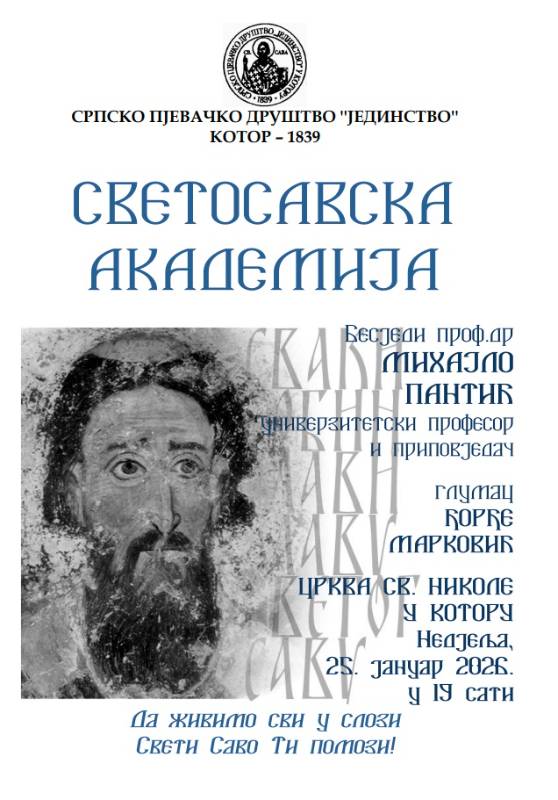
SAINT SAVA'S ACADEMY ON SUNDAY AT 7 PM
The Saint Sava Academy, organized by the Serbian Singing Society "Jedinstvo"...

Canonization of the Hieromartyr Michael (Barbić), Parish Priest of Krtolj, on Saturday
The solemn act of canonization of the Holy Hieromartyr Michael (Barbić), Parish...
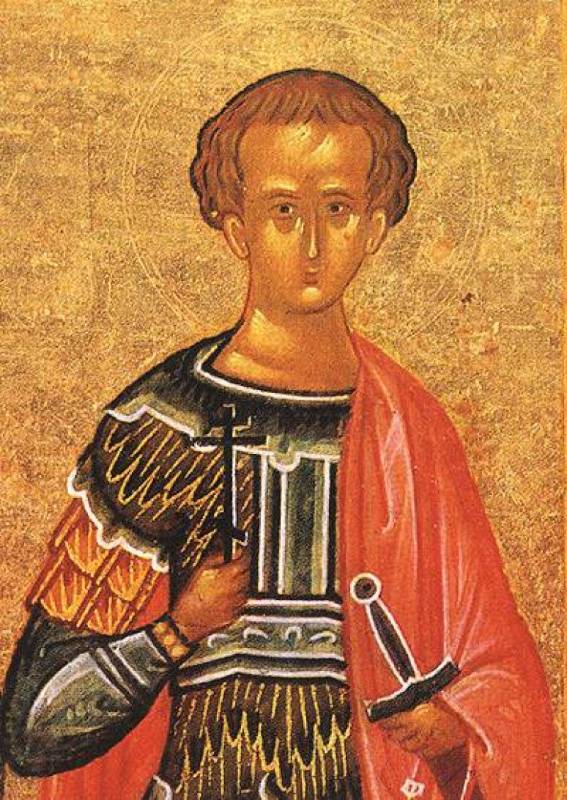
Calendar for January 22 Holy Martyr Polyeuctus
In the city of Melitina in Armenia, many Christians suffered for Christ. In...


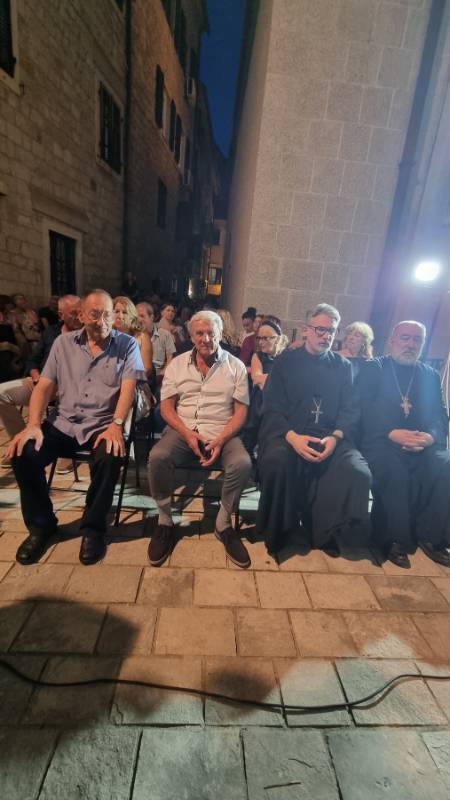

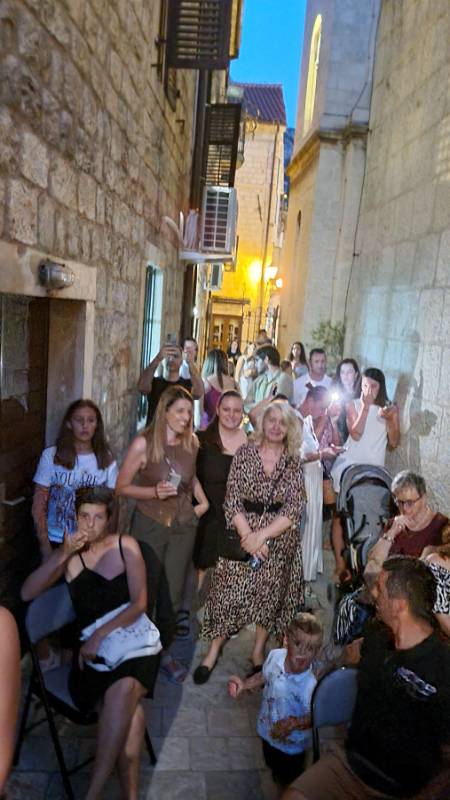
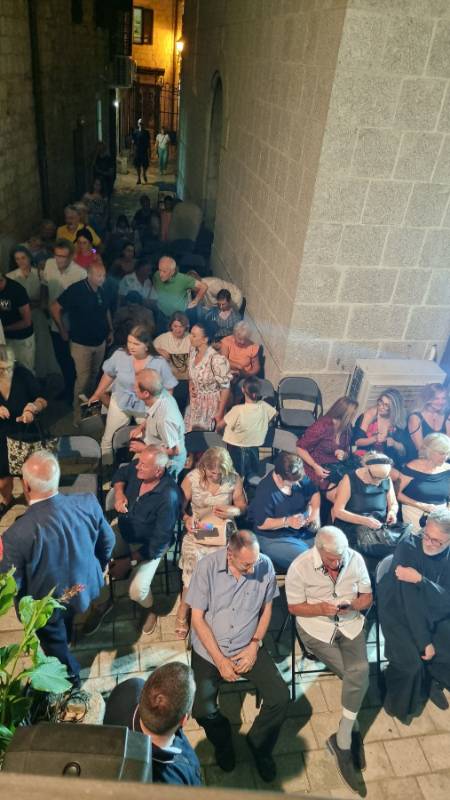
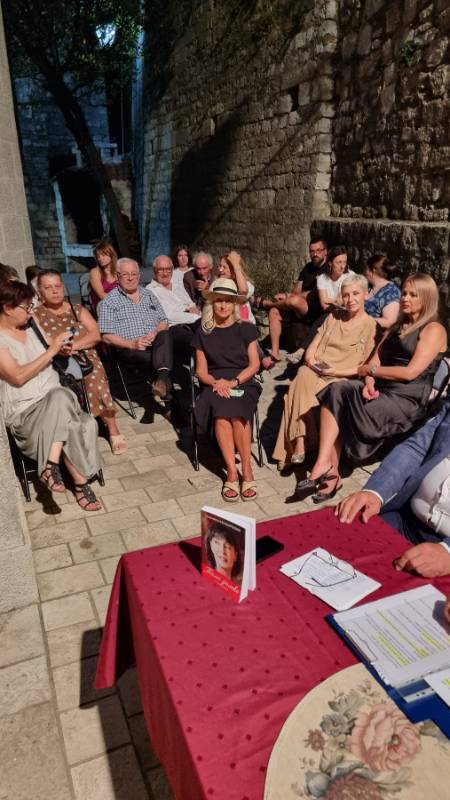
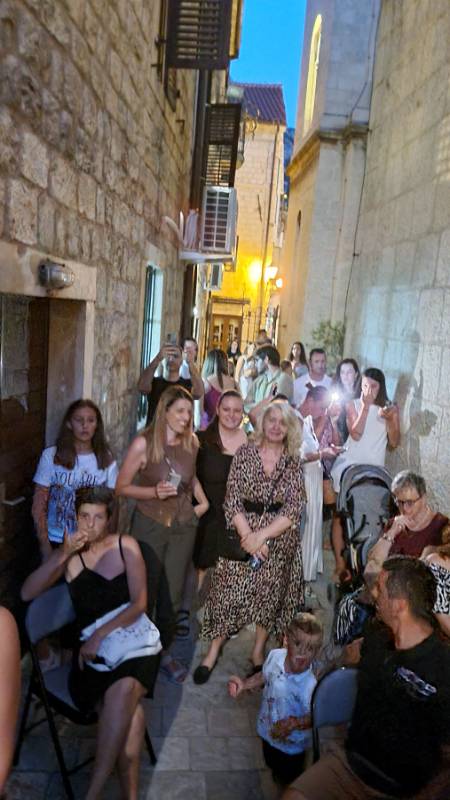
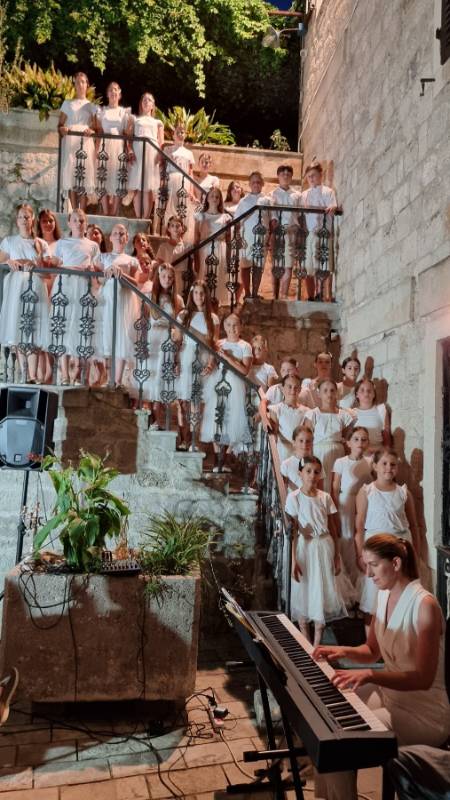
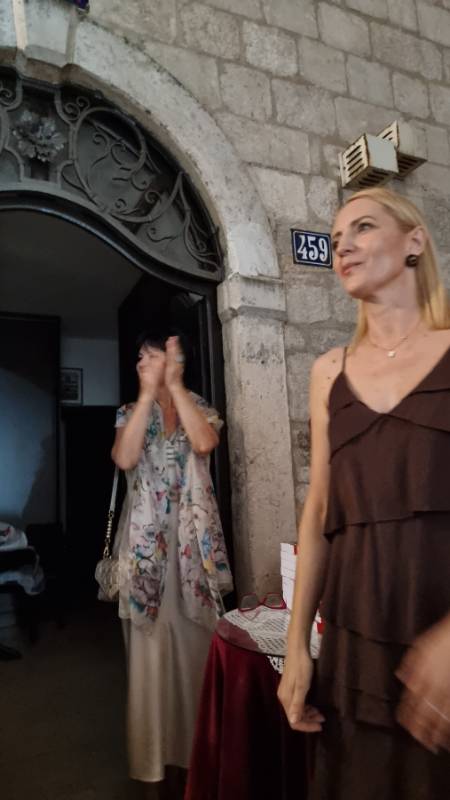
.jpg)
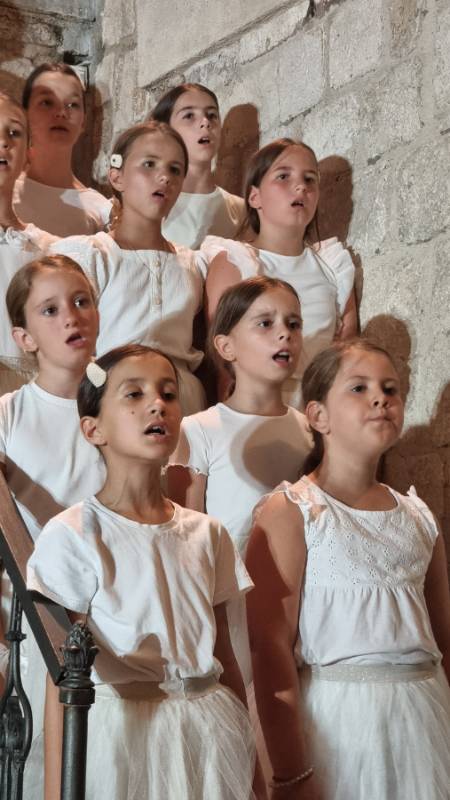
.jpg)
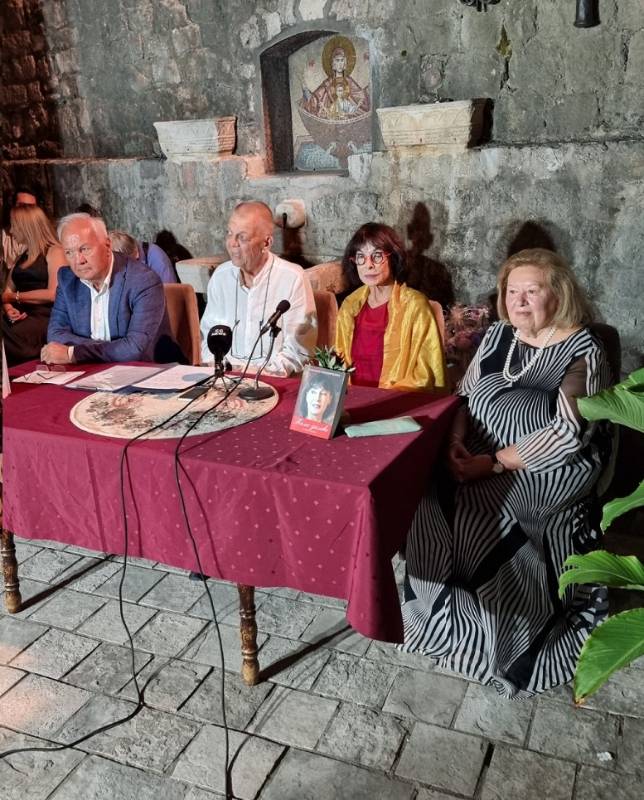
.jpg)
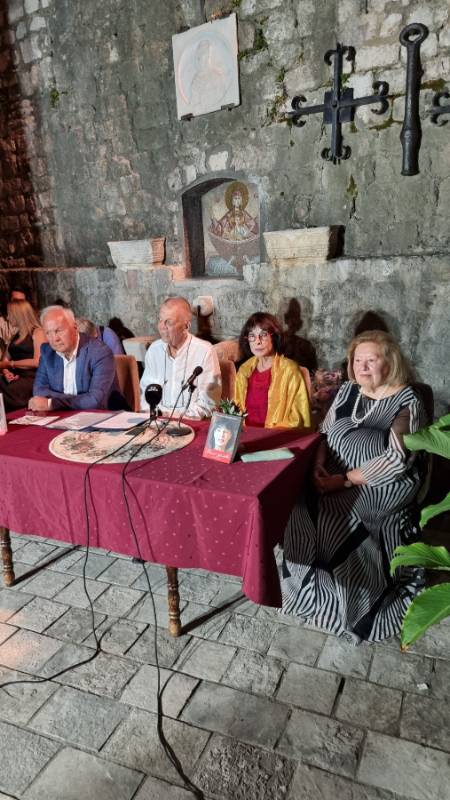
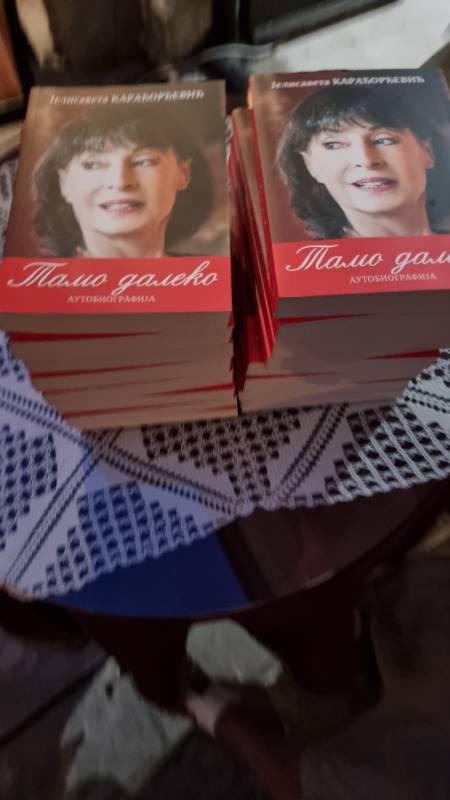
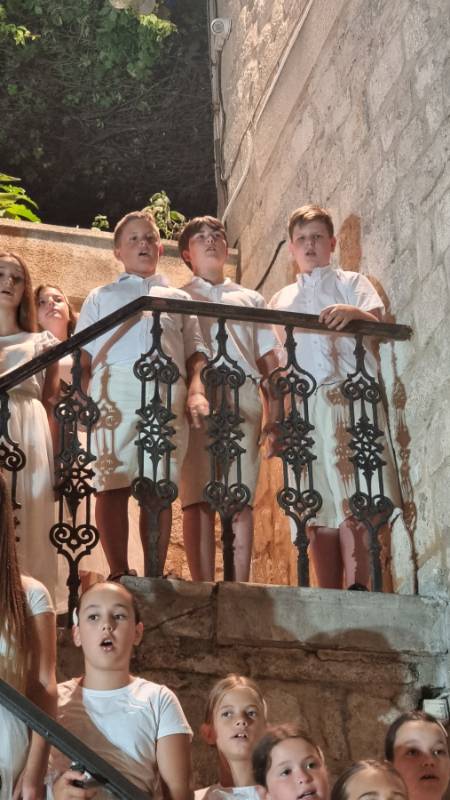
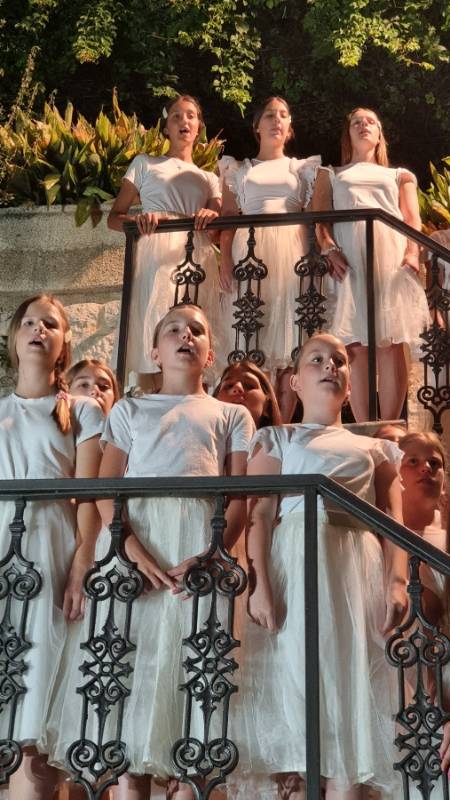
.jpg)
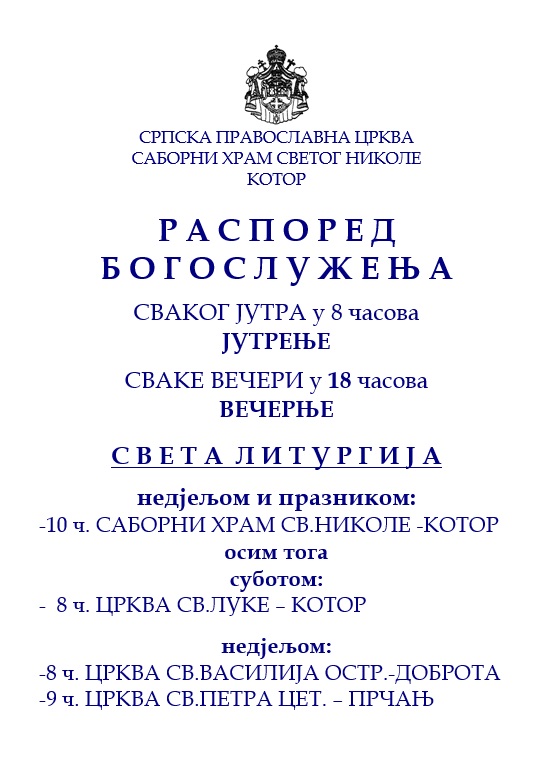
.png)